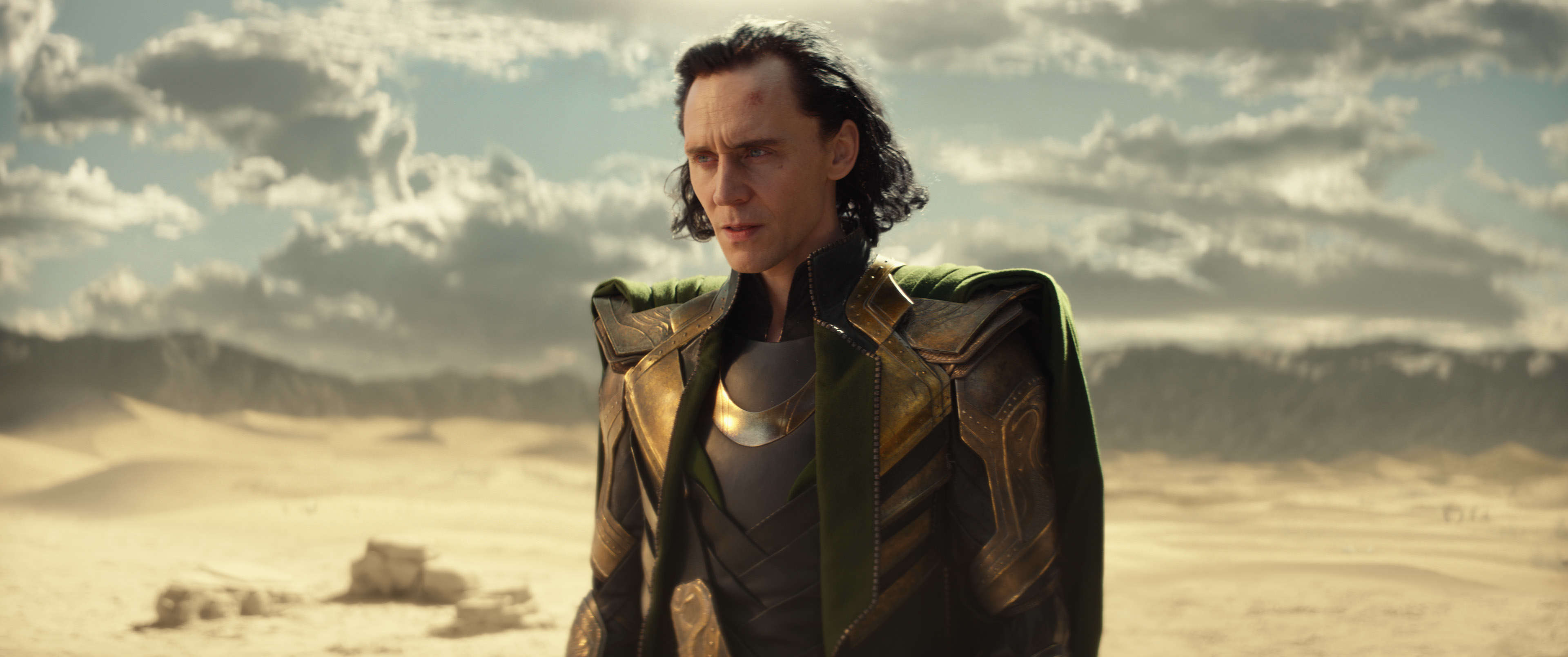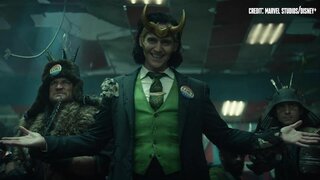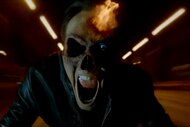Create a free profile to get unlimited access to exclusive videos, sweepstakes, and more!
Marvel's Loki is a metafictional odyssey about the pain and joy of being a fictional character

The Marvel Cinematic Universe has, like its comic book forebear, been playing with the idea of its own internal continuity for a while now. We saw it in WandaVision and its exploration of how someone with the power to create anything they want might recast themselves in their own life, building their dream existence whatever the cost. We saw it in Avengers: Endgame and its loving, time-hopping journey back through the successes and failures of the MCU. We even saw it in Thor: Ragnarok when Hela deemed what we'd once thought was the real Infinity Gauntlet a fraud, part of the illusion of Asgard's eternal glory that she was on her way to shatter.
This sort of playfulness is natural, especially when you have a fanbase that's going to automatically pick apart and re-examine every millisecond of footage you put out into the world, but never has it reached such ambitious heights as the series premiere of Loki. This week the much-anticipated Disney+ series following the MCU's beloved God of Mischief (Tom Hiddleston, back in top form) arrived with a lot of fanfare and a lot of lingering questions regarding just what exactly the series would aim for in terms of the character's new direction. The addition of the Time Variance Authority added even more questions within the fandom, because it meant Loki could quite literally go not just anywhere, but anywhen. With that kind of narrative fluidity in its arsenal, what would Loki actually end up being about?
Well, we won't know its endgame until we arrive at it, but over the course of its fiendishly clever first hour, the new series from writer Michael Waldron and director Kate Herron established itself as the most ambitious metacommentary on the greater MCU to date, and made Loki's ongoing story an absorbing tale about the ups and downs of existing as a fictional character.
Warning: Spoilers ahead for the series premiere of Loki.
After a brief prologue that establishes what we're seeing takes place immediately after Loki stole the Tesseract from the Avengers in 2012 (during Endgame's time heist), Loki wastes no time in introducing its title character and its audience to the TVA and its massive reach across all of time and space. With every little fanfare, Loki is taken into headquarters for processing, and it's clear right away that the TVA employees have such a firm grasp on who he is and where he's been that it's become boring to them. Loki's asked to sign a confirmation of everything he's ever said, asked to walk through a machine that verifies he's not a robot, and asked to wait in a queue for a judge to sentence him for crimes against "The Sacred Timeline." Loki, you see, has gone rogue, and when he tries to point out that his actions wouldn't have been possible without the actions of The Avengers, he's told to let it go. What they did was "supposed to happen," while what he did wasn't.
In other words, if you're still worried about what happened to Steve Rogers when he went back in time, MCU fans, just zip it and watch the show.

Loki is, of course, incensed by this, and it only gets worse when Agent Mobius (Owen Wilson) takes him into a room and plays him what's essentially an MCU recap reel not unlike what you might find on YouTube. Loki watches himself trying to take over Earth in The Avengers and seems relatively unfazed, convinced that it's all part of his eventual destiny as a God-King, convinced that he's the one who understands how his own story is supposed to go.
Right up until he isn't.
Up to this point in the story, the TVA can in many ways be viewed as the keepers of MCU continuity, something the show drives home with the tongue-in-cheek nature of terms like "Sacred Timeline." The TVA are, as Miss Minutes helpfully explains, the people responsible for making sure everything fits, no one strays from their path, and everything unfolds exactly as it should. If they weren't so multiversally powerful, they might be nothing more than a Reddit thread given form, pointing out every inconsistency in hours of MCU footage over the course of more than a decade. But because they are so powerful, we can understand the TVA as a kind of omnipresent lore keeper, a massive bureaucratic Fiction Machine that makes everything flow as part of one all-important, even sacred, story.
In keeping with that everything-in-its-place spirit, Mobius plays the tape through, past Loki's exit from the timeline, into the events of Thor: The Dark World and beyond. Eventually, Loki sees all of it, from his unwitting role in the death of his mother to the rekindling of his brotherhood with Thor to Odin's passing to, finally, his own heroic death at the hands of Thanos. As he watches with a mixture of bittersweet frustration and bafflement, Mobius tells him that it's not just what's supposed to happen to him, but what has to happen to him, because his role is to be a dark example that helps others become the "best version" of themselves. The Fiction Machine dictates that his story only goes one way, not just emphatically but rather coldly, as evidenced by an earlier exchange between Loki and Judge Rensalyer (Gugu Mbatha-Raw).
"You ridiculous bureaucrats will not dictate how my story ends!" the God of Mischief rages.
"It's not your story, Mr. Laufeyson," the Judge replies. "It never was."
If the metaphor ended there, in a dynamic and perhaps depressing blend of comic book continuity and determinism, Loki's first episode would probably still work, but then it goes deeper. Mobius, it turns out, is not just interested in the cold determination of the Fiction Machine to which he's devoted his life. He's not just there so that this place — so powerful that Infinity Stones are nothing but paperweights and so secretive that no one ever hears of them unless they absolutely have to — can persist in its mission to preserve continuity at all costs. No, Mobius wants to know why Loki's role in the Sacred Timeline is what it is, and it's there that the series reveals that even Loki himself has been working from some pre-scripted notion of what he was always meant to be.
As Mobius shows him the highlights of his life, Loki insists over and over again that his purpose is mischief and conquest, while Mobius asks over and over if he's ever actually enjoyed any of the pain he's caused people. Finally, broken by witnessing his own Sacred Timeline fate, Loki concedes that no, he doesn't actually like hurting people, something we see on his face throughout the MCU when things get just a little too dark. The pain he causes, he explains, is part of the illusion. It's a role he's written for himself.
And if that's true, does that mean he has the power to write himself a new role from within the Fiction Machine?
Over the course of an hour of streaming television, the first episode of Loki re-establishes the God of Mischief as one of the MCU's most valuable players by essentially telling us, and him, over and over that he is just a character in a larger story. The TVA might as well be Marvel Studios, and the Timekeepers might as well be Kevin Feige, and they've all inserted Loki into his role, even the parts he didn't see coming. Then, just as it could have ended with Loki admitting to himself and to Mobius that he's "a villain," it gives Loki a renewed sense of what might well be the ultimate power of any fictional character: Agency.
Because even if he does exist on someone else's timeline, even if he's consigned to live the same fate over and over again in an omniversal Fiction Machine, Loki's understanding that he was writing a character within himself gives him the power to rewrite at least a few things. It gives him the power to become a better version of who he was always supposed to be.
Maybe the judge was wrong. Maybe it finally is his story.
New episodes of Loki air on Wednesdays on Disney+.


























